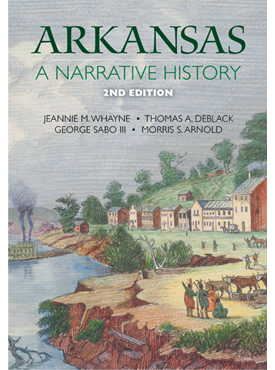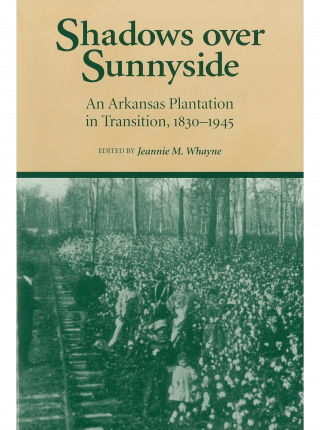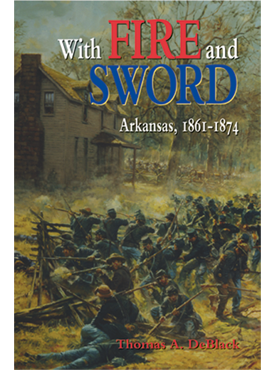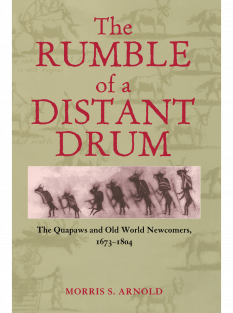Supplemental teaching materials available by emailing mak001@uark.edu.
Arkansas: A Narrative History is a comprehensive history of the state that has been invaluable to students and the general public since its original publication. Four distinguished scholars cover prehistoric Arkansas, the colonial period, and the nineteenth and twentieth centuries and incorporate the newest historiography to bring the book up to date for 2012.
A new chapter on Arkansas geography, new material on the civil rights movement and the struggle over integration, and an examination of the state’s transition from a colonial economic model to participation in the global political economy are included. Maps are also dramatically enhanced, and supplemental teaching materials are available.
“No less than the first edition, this revision of Arkansas: A Narrative History is a compelling introduction for those who know little about the state and an insightful survey for others who wish to enrich their acquaintance with the Arkansas past.”
—Ben Johnson, from the Foreword
Jeannie M. Whayne is professor of history at the University of Arkansas. She is the author of Delta Empire: Lee Wilson and the Transformation of Agriculture in the New South.
Thomas A. DeBlack is professor of history at Arkansas Tech University. He is the author of With Fire and Sword: Arkansas, 1861–1874.
George Sabo III is professor of anthropology at the University of Arkansas. His publications include Rock Art in Arkansas and Paths of Our Children: Historic Indians of Arkansas.
Morris S. Arnold is a jurist of the United States Court of Appeals for the Eighth Circuit and author of Rumble of a Distant Drum: The Quapaws and the Old World Newcomers, 1673–1804.
Joseph Swain is assistant professor of geography at Arkansas Tech University.
Ben Johnson is professor of history at Southern Arkansas University and the author Arkansas in Modern America.

Adopted at: University of Arkansas at Rich Mountain
Course: HIS-233 Arkansas History
Course Description: This course offers a study of the political, social, and economic development of Arkansas from the era of exploration and early statehood to the present. Major themes include the Civil War and Reconstruction, segregation and disenfranchisement, progressivism, and civil rights.
Professor: Kyle Carpenter
Term: Spring 2021
Adopted at: Black River Technical College
Course: HIST -2083 Arkansas History
Course Description: The unique geography of Arkansas, the position of the state in the South, its relationship to the conflict over slavery and the role of the state in the Civil War, Reconstruction, the dawning of the Twentieth Century, World War I and II, the battle for Civil Rights, the impact of Korea and Vietnam, and the changing role of Arkansas in modern times are all addressed in this course.
Professor: Dianna Fraley
Term: Spring 2021
Adopted at: University of Arkansas Fort Smith
Course: HIST 4153
Course Description: Physiographic and demographic patterns; exploration, settlement, and political, social, and economic evolution of Arkansas from the Spanish and French excursions to the present. Also, a study of contemporary policies and government in Arkansas.
Professor: Billy Higgins
Term: Spring 2018
Adopted at: University of Arkansas at Little Rock
Course: HIST 4355, Arkansas History / Government
Course Description: Focuses on selected topics central to Arkansas history, covering its political, social, cultural, geographic, and economic development from settlement to present.
Professor: Simon Hosken
Term: Summer 2015
Adopted at: Arkansas Tech University
Course: HIST 2153, Introduction to Arkansas History
Course Description: An introductory course on the history of Arkansas.
Lectures, discussions, and applied activities will be central to this professional education requirement for Early Childhood and Middle Level Education majors.
Professor: John Rowley
Term: Fall 2015
Adopted at: Arkansas Tech University
Course: HIST 4153, History of Arkansas
Course Description: A study of the history of Arkansas from prehistoric times to the present, noting political, social, economic, and cultural trends.
Professor: Brenda Murray
Term: Fall 2015





